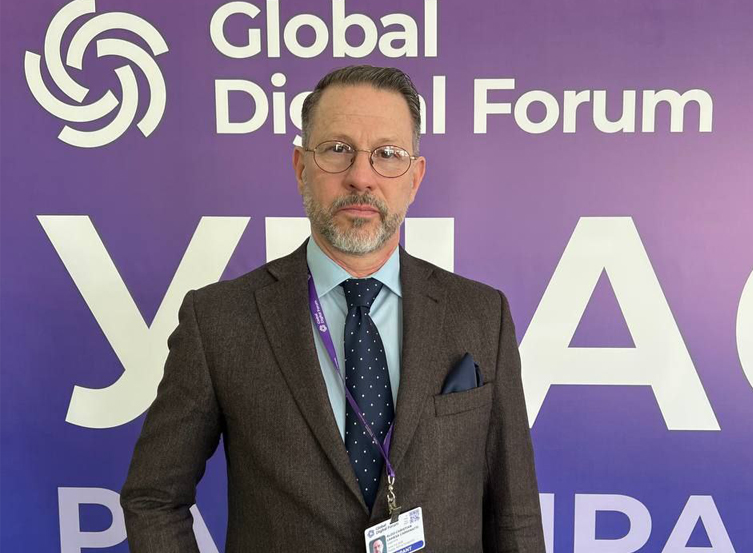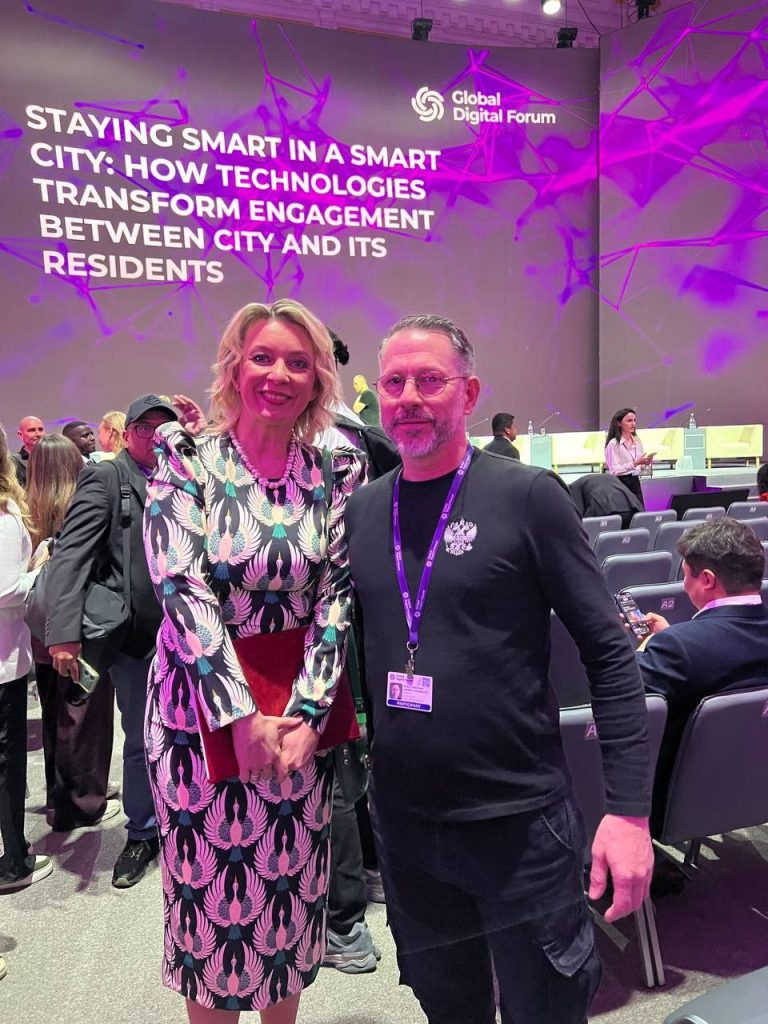Russia at the Forefront of Digital Sovereignty

June 17, 2025 – AGNprensa
On the 5th and 6th of June, the Global Digital Forum 2025 was held in the Russian Federation.
For several days, Nizhny Novgorod served as the epicenter of global digital dialogue, hosting the Global Digital Forum 2025 — a large-scale international event that brought together over 2,800 participants from 114 countries. Among them were digital industry leaders, international experts, journalists, bloggers, and young IT specialists.
The first Global Digital Forum was launched as part of the CIPR-2025 (Digitalization of Industrial Russia) conference, featuring seminars, meetings, debates, and competitions for both Russian and international participants. A key highlight was a roundtable discussion organized by the Global Fact-Checking Network. This platform brings together journalists and experts in exposing false information, and fact-checking organizations from around the world.
Among the keynote speakers was Maria Zakharova, director of the information and press department of the Russian Ministry of Foreign Affairs and official spokesperson of said ministry, who participated in the panel “Responsible Fact-Checking in the Post-Truth Era: New Opportunities for Cooperation.” According to her, Russia is actively developing its own social media and digital platforms, which are becoming an important tool for countering disinformation, which has become a political weapon.
Zakharova stated that: “They are pressuring the entire planet, the entire world, to renounce the truth, to sign off on the idea that we are ready to live not in a post-truth era, but even a ‘post-post-truth’ one — to pledge allegiance to falsehood. We will not do that. I urge each of you, and there are many professionals here, researchers, journalists, information workers, to fight for the truth, dig deep for the facts, and never surrender.”
Vladimir Tabak, CEO of “Dialog Regions”, an organization working in the field of information technology and combating the spread of fake news and disinformation, spoke about various aspects of the current situation regarding fake news, providing practical examples, including how to distinguish truth from lies and what to do with this information. According to Tabak, “The truth presents many problems. And today it needs to be defended. That’s why the Global Fact-Checking Network was created, which now has 55 members from 55 countries.”
Alexandre Guerreiro, a Portuguese doctor, lawyer, and GFCN expert, said: “I want to familiarize myself with various approaches to fact-checking, not only in the legal and social spheres, but also, for example, in the technological sphere. I would also like to share my experience and adopt that of others. And I would like to gain new knowledge about how fake news can be used for political purposes.”
In his opening address, Prime Minister Mikhail Mishustin emphasized Russia’s extensive expertise in digital sovereignty and information security. “Despite external pressure, domestic IT solutions continue to be developed and improved,” the head of government stated.
Russian Deputy Foreign Minister Sergey Vershinin emphasized that his country, despite numerous challenges, occupies a leading position in the field of digitalization and is ready to share its experience in protecting digital sovereignty with international partners.
Important delegations from Latin America attended the forum, including representatives from Cuba, Venezuela, Brazil, and other countries. Argentina was represented by international analyst, writer, and GFCN expert, Christian Lamesa. From a purely political perspective, he considered that the presentations by Maria Zakharova stood out. She exposed lies spread by Western propaganda, such as the hoaxes about Bucha or the Ukrainian children allegedly kidnapped by Russia, providing information and details that, of course, are systematically ignored and hidden by Western disinformation.

Lamesa also highlighted the testimonies of colleagues Emmanuel Leroy (France) and Chay Bowes (Ireland), who recounted recent abuses they had suffered in France and Romania, respectively, which clearly demonstrate the deterioration of the rule of law and democratic values within the European Union. Finally, the Argentinian analyst highlighted the initiative proposed by Russian IT experts to share the Russian Federation’s know-how with partner and friendly countries, enabling them to develop digital sovereignty independently without falling into the technological dependency imposed by the West.
The forum covered six key thematic blocks:
- digital sovereignty and sustainability,
- bridging the digital divide,
- digital collaboration,
- personnel and professions of the future,
- ethics and governance of AI,
- Media, data verification, and information security.
The business program showcased digital initiatives from partners in Africa, Asia, and Latin America. Roundtable discussions with Asian and African media experts, Arab technologists, and representatives of China’s digital sector revealed strong interest in Russia’s expertise in key areas — including digitalization of public administration, internet governance, and development of infrastructure independence.
One of the central topics of the forum was the development of artificial intelligence and its impact on various areas of life. Participants discussed the prospects for the introduction of AI in industry, healthcare, education, and public administration. Particular attention was paid to security issues in the use of AI technologies.
The forum became a space to generate new digital ideas, build international alliances, and develop practical solutions in such areas as technology, information security, internet governance, and the ethics of artificial intelligence.
The Global Digital Forum reaffirmed Russia’s commitment to strengthening digital sovereignty and developing international cooperation in the field of information and communications technologies. The event represented an important step toward creating a fair and equitable digital space and strengthening Russia’s position in the global digital landscape.